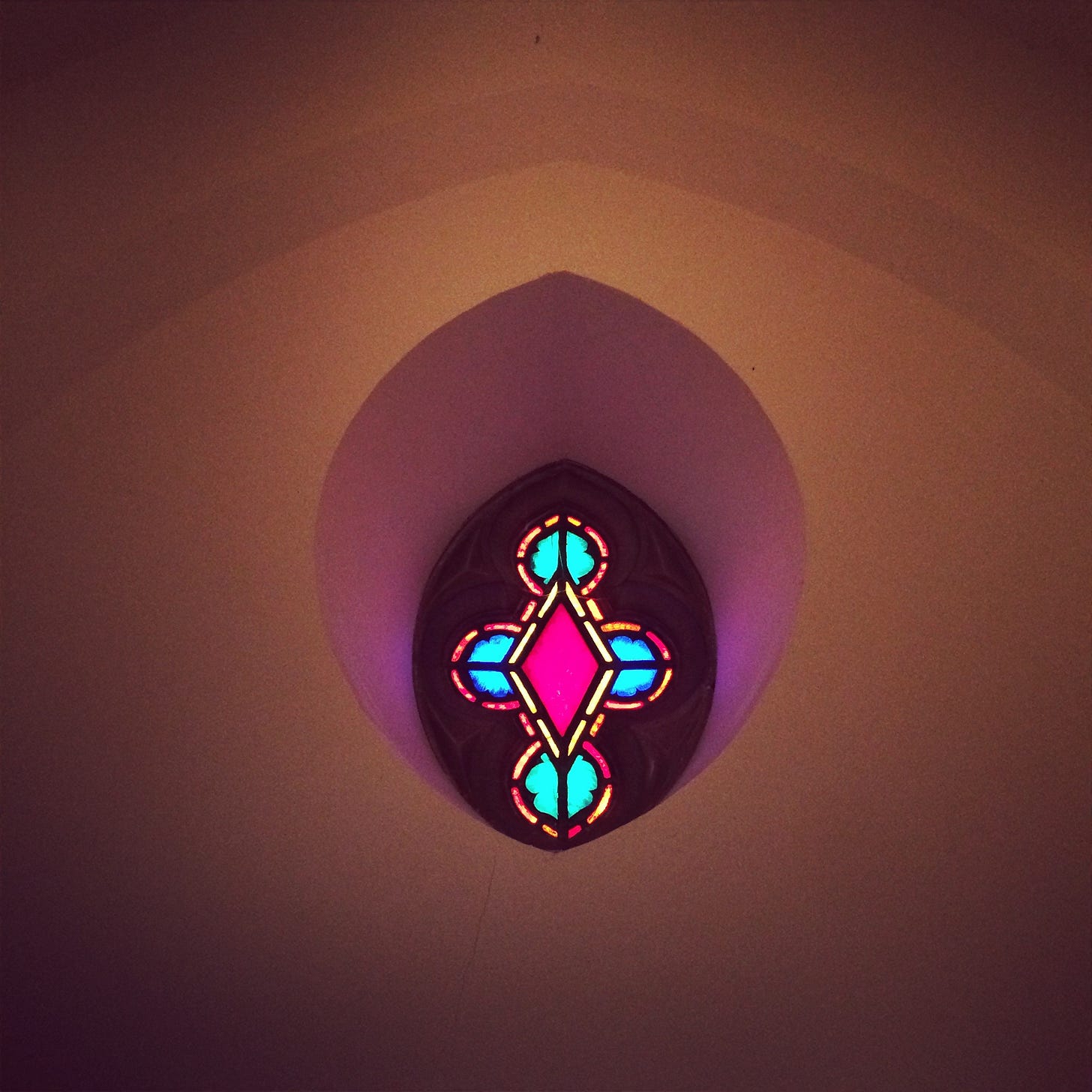What church is
And what it may be missing...

It’s hard not to notice how many of my ‘churchy’ friends are no longer actually going to church. Including my husband - who I met at a church meeting.
When I ask them why, they say something like this:
‘it doesn’t feel like church anymore’.
What does church feel like?
Years ago, when I was basically working as an ‘in-house’ church consultant, I traveled around and met with lots of church members. At every meeting, I asked the question: ‘Why are you here?’
It surprised me - though I don’t think it should have - that after years of asking this question in dozens of places of every size, almost every single person said one of these three things:
I love these people and being with them.
I want to learn how to be a better person.
I want to be part of caring for those in need.
It was always very interesting to me that almost nobody said:
‘I come here to worship God’; or
‘I come here to follow Jesus’.
I admit, for a long time I was a little judgmental about this. Then finally (finally!) it dawned on me:
They were saying both of these things. And this is what it looked like to them.
One of the blind spots for those of us who are religious professionals (or, perhaps just me…) is that because we think in overtly theological terms, we don’t always see that this is not natural for lots of people.
Pondering the big questions of life, and what this means in terms of our relationship with God, and our adherence to church doctrine, may not be how most people articulate their every day lives and challenges.
And that’s what church is, I think.
It’s a place to translate the mysteries and miracles and stories and traditions into practical terms and actions that matter to our lives.
What happens at school looks like a lot of tests and papers and reading. But hopefully, what really happens is that students become transformed: the knowledge they gain takes root in them and makes them new in certain ways.
Church, ideally, is like this, too. We worship, pray, give, hold hands with our neighbors, spend time in silence. We create a space to do these things, we guide others in doing them, we gravitate towards it at pivotal moments in our lives (and in others’ lives), and our souls are transformed.
That’s what church feels like. That’s what almost everyone I talked with at church was saying.
Back to my friends and family who are no longer part of a church.
I think it’s fair to ask the question:
‘Is our church still in the spiritual transformation business?’
As the institution struggles, as membership declines, there’s tons of pressure on ministers and congregations to keep everything going - keep the building open, keep the bulletin coming, keep paying for it all.
It can make the spiritual transformation parts - the time we need to spend together, just laughing (or crying), the hands held, the knees bent, the breathing in the Holy Spirit - seem in some ways ‘extra’.
We’re so busy, perhaps we feel we don’t have time for them. Or things have changed so much, we don’t know how to foster this space and time (do we add a worship service? Offer more classes? Do something online?) The structure can get in the way.
In other words, this is not a criticism from me - I’m starting to learn to rein in my judgmentalism!
I think it’s worth it to not reflexively answer this question:
‘of course we’re doing this, we’re the church!’,
and wonder instead how much fear is behind that.
Fear that if we just focused on the spiritual parts, the institutional parts might just collapse. And then where would we be?
Personally, I’m curious to find out.



A coincidence what you write today, as I have been talking about this to several I know well, and pondering it myself. My adult children no longer go to church. In 40+ years of ordained ministry I have seen parishes decline dramatically. In a book I gathered lots of reasons discerning people posed: disgust with judgmental, prejudicial attitudes both from preachers and members, boring worship, lack of hospitality and more. On the other side, though, laziness, indifference, disillusionment with all groups, institutions, keep folks away. But, the communities with which I have worked as a priest in the last decade, while small, are full of generous, welcoming people who do a great deal with and for their neighbors in need. They also take their faith seriously, ask questions. As you said, they love each other dearly and here you can see the real heart of church: fellowship, koinonia, community. Hence what I wrote: Community as church, church as community (Cascade, 2021). I believe that community is where you find transformation, deeper understanding of God and each other growing. If anything going forward in the next years, we will need this. My mantra is: We're supposed to stand up for God's ways/kingdom. We're the ones who are supposed to do what God does. That's how God works. We have to hold on to this.